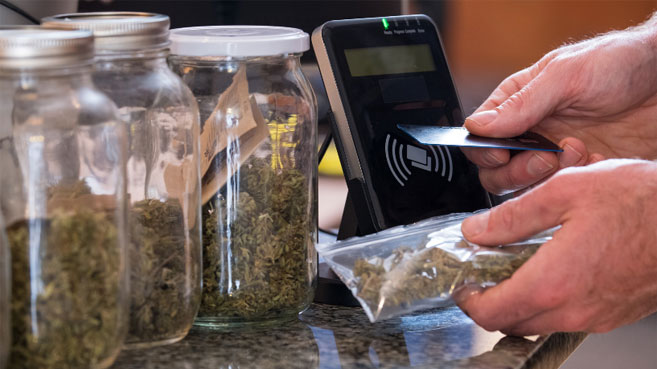As Switzerland opens up its first cannabis dispensary, cannabis pharmacies in the European Union need to pay attention and look to the future.
The cannabis market in Europe has been changing for almost two decades, and U.S.-style dispensaries are now a reality in the EU. Regulators from around the globe have visited U.S. and Canadian dispensaries, and Germany has announced the second pillar of
their program will be a dispensary model. If the EU truly wants to combat the illicit market, dispensaries are the way forward.
Why Patients Prefer the Dispensary Model
Cannabis patients are not like diabetic people who stock up and monitor their supply closely. Patients can have illicit cannabis suppliers at their houses expediently, at which point they can see products and receive them immediately. The legal market must operate similarly to win customers from the illicit market.
Long Wait Times Make Pharmacies Inefficient
Cannabis patients want to walk into the pharmacy or dispensary, pick up their medicine and consume it immediately. The current system requires patients to wait to see a doctor, wait for the product to be dispensed to the pharmacy and either wait for delivery or go to the pharmacy themselves. This is not the user experience that patients and customers desire.

Pharmacists Have Limited Knowledge of Cannabis
Patients want to speak with someone who understands all cannabis products, not a general practitioner who only knows a few brands nor a pharmacist who only recommends the in-house brand. 70% of patients walk into doctors’ offices in Germany and Australia and tell them what they want; doctors seem to add little value in these situations.
Cannabis Patients Know What They Want
While there are people with serious ailments, in general patients use cannabis as part of a more extensive regimen. Patients are online and informed. They want to have choices in the products they purchase and they want to talk with someone who is personally knowledgeable. Dispensaries serve that purpose.
EU Must Take Note of Early Australian Dispensaries
In Australia, there are now pharmacies that cater solely to cannabis. We can look at these establishments as early forms of specialized dispensaries. These establishments may even progress to in-house telemedicine services that can prescribe cannabis so patients will be able to talk to specialists and receive their medicine immediately.
Dispensary Models are More Economically Sound
The current EU cannabis distribution models are flawed and will eventually follow the same boom-bust the U.S. and Canada saw. Pharmacies, clinics, doctors and distributors all want their slice of the sale. However, the consumer doesn’t care who is getting paid. Consumers and patients simply want better pricing and if they don’t get it, they will seek out the illicit market.
Already, cannabis cultivators and manufacturers operating in the European and Australian markets have been squeezed to a barely survivable margin. Prices are still coming down, but too many hands are getting paid.
Distributors will be the first to take a hit when producers are pushed to insolvency pricing. Many add little value and will eventually go out of business as volumes increase and real-world distributors with lower margins grab shares.
Clinics and cannabis doctors in the EU and Australia will also follow the same trend as those in Canada and the U.S.; they will lower their prices until they realize this is a losing proposition and write scripts for free while integrating into a distribution pharmacy model.
Additionally, pharmacies will eventually dispense at decreasing margins until they realize their shelf space is valuable and start carrying fewer cannabis products. It’s hard to imagine if you are in any of these sectors, but it’s a reality that is approaching quickly.
Regulations Will Adapt to the Dispensary Model
Powerful groups move regulators and politicians. Big Pharma wants cannabis to go slow, pharmacies want their piece of the action and even tobacco distribution networks desire a go at cannabis. But as economics make these groups less incentivized to fight for their space, logic starts to prevail.

Dispensaries Allow For Beneficial Taxation
In the end, most logical countries want to tax and control cannabis products to minimize the illicit market and provide people with safe products. As groups stop lobbying for their piece of the action, more economical models — like true dispensaries — will come into vogue.
The reality is policymakers have known all along that dispensaries are the best cannabis distribution model, but they didn’t want to upset the status quo by undercutting pharmacies. This situation won’t change quickly, but as dispensaries start to form, such as in Switzerland and Australia, more countries will recognize their importance.
Dispensaries Are Vital for a Successful European Cannabis Industry
Ultimately, there will be EU dispensaries and both patients and consumers will be better off. For centuries, individuals have been safely consuming cannabis. All the shareholders, policymakers and erroneous professionals attempting to profit off the simple process of selling high-quality cannabis medicine to consumers are only strengthening the illicit market. A direct-to-consumer model where producers manufacture a product that goes directly to dispensary shelves is consumer pricing power that works.
Michael Sassano is the Founder, Chairman & CEO Somai Pharmaceuticals.










